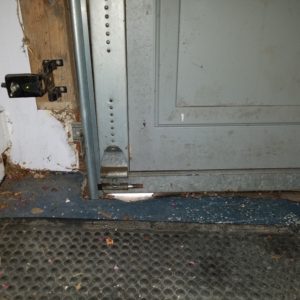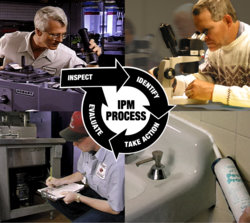AgriLife Extension seeking individuals to participate in integrated pest management survey
Online survey to help expand knowledge of home pest control options
DALLAS – Individuals 18 years old and older with a fairly recent experience of insect pests in the home are invited to participate in an online survey relating to integrated pest management.
“The purpose of the survey is to get more complete information on pest management practices and how these affect consumer behavior regarding home pest control,” said Janet Hurley, Texas A&M AgriLife Extension Service program specialist based at the Texas A&M AgriLife Research and Extension Center in Dallas.
Hurley is leading the survey portion of a wider study supporting homeowner integrated pest management, or IPM, programs. Study partners include the University of Florida and Auburn University, with funding provided by the U.S. Department of Agriculture’s National Institute of Food and Agriculture.
The study’s lead investigator is Faith Oi, Ph.D., University of Florida.

“After more than 40 years of universities providing training to the pest control industry, we calculate that only 6.7% to 11.9% of residential units in the U.S. are treated by professional pest managers,” Hurley said. “And of those who choose to self-treat, it appears pesticides are used somewhat liberally.”
The U.S. Environmental Protection Agency reported 59 million households applied their own pesticides, far outnumbering the 9.1 million to 16.1 million residences treated by pest control professionals.
“Untrained homeowners may not understand that pest prevention is more economical than controlling a pest infestation,” she said. “The estimated average cost of a pest control contract is about $600 a year, while the estimated cost of a door sweep that could have prevented a pest is about $10 and can last many years.”

Hurley said the agency is looking for individuals to participate in the online IPM survey to better understand what pest control decisions consumers make — and why. She said anyone over 18 years of age who has experienced a pest problem in the past six months and wants to participate in the survey can go to https://tinyurl.com/PestsintheHome.
“We would like individuals to share with us how and why they chose to solve their pest issue — either by using a pest control company or doing it themselves,” she said.
Hurley said the survey is designed to directly engage a diverse consumer group in collecting baseline data on integrated pest management knowledge so they may provide practical, science-based messages about IPM directly to consumers.
She said no direct personal identifiers will be collected, and while the results of the research study may be published, there will be no way to identify individual participants. Go to https://tinyurl.com/Terms4Survey to view the survey host’s confidentiality policy.
“The main problem we seek to resolve is developing a cohesive dataset and holistic recommendations for pest management in and around structures that can be implemented by homeowners and non-pest management professionals,” she said.
Hurley said participation in the survey and study is completely voluntary.
”You can decide not to participate in this research or leave the study at any time,” she explained.” If you decide to participate, you are asked to complete the informed consent page and then complete the survey. Once you’re finished, you may exit the survey.”
Hurley said it will take about one year to keep the online survey open and allowed to migrate across social networks and groups.

“Our goal is to encourage the practice of IPM and to emphasize pest prevention and exclusion strategies,” she said.
She said other aspects of reaching that goal will include defining the minimum amount of space to prevent pests from entering structures and performing laboratory tests of over-the-counter homeowner pest control products for efficacy.
“Integrated pest management can delay the onset of insecticide resistance, preserve beneficial insects, and decrease human and environmental exposure to unnecessary pesticides,” Hurley said. “Pest exclusion and prevention practiced by homeowners will also assist the pest control industry in fully practicing IPM.”
Hurley said potential participants are encouraged to ask questions regarding this survey and overall IPM study. Contact Hurley at 972-952-9213 or ja-hurley@tamu.edu. They may also contact the Human Research Protection Program at Texas A&M University at 979-458-4067, toll-free at 1-855-795-8636, or irb@tamu.edu.



